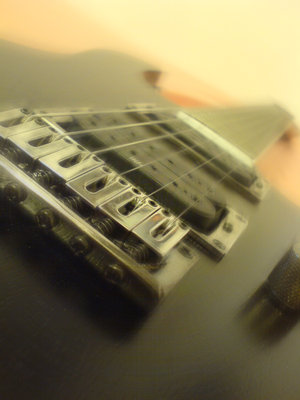During the process of learning how to play an instrument, every musician eventually stumbles upon the term “music theory”, and while some people take the time to understand it, there are many who choose to continue learning without. The latter will excel minimally in developing their skills and struggle in composing decent music and becoming experienced musicians.
When it comes down to writing music, the composers’ main goal is to generate a certain mood, and convey their ideas and emotions through the music. So some people would argue that since music is personal, it would be easy to write. The truth is that it’s alot harder than they think. Although in some cases there have been musicians that succeeded in writing great music without studying theory (e.g. Chuck Schuldiner), these cases are considered exceptional. This doesn’t mean that without theory one can’t play an instrument; it just means that he or she will probably stick to learning songs without understanding their structure and struggle in coming up with material that’s original and meaningful. In this case, the only musician’s technique will improve, but his phrasing, understanding of music , and ability to compose will not.
Music theory sets the rules of how songs should be written. It aids musicians in projecting their moods through their instruments by giving them a wide options of chords, scales/modes, meters, and dynamics to choose from. A modification in any of these elements will produce a different result. The music could be pleasant, unsettling, or even depressing depending on the combination of these elements. There are two important concepts in theory which are consonance and dissonance. The first one refers to pleasant sounds which sound resolved. The latter refers to sounds are unpleasant and sort of begging to be resolved. Although the latter seems like it’s the last thing a musician would want, there are many cases were it’s intentionally used to build tension in music and intrigue the listener. Knowing where to use each one is a skill that theory provides.
Theory is also a key element in jamming with other musicians and improvising. If a musician who knows theory was asked to jam with others on a blues progression in E, for example, he’ll know exactly what chords are going to played and how to improvise over them while making sure the music has a “bluesy” sound. A musician without this knowledge would have no idea what do in a similar situation, and will end up sounding terrible.
Theory will help musicians in learning and mastering the factors that make up a musical style. Even the way they listen to music will change; it’ll become more analytical causing them to grasp certain ideas subconsciously and implement them in their playing. It will also help them in shaping their own styles and identities as musicians and implement elements of their personality in the music.
Speaking from my personal experience, theory has helped me improve my musical abilities drastically, and I can’t stress it’s importance enough. That’s why I encourage musicians to learn as much theory as they could. It will give them a wide range of possibilities of things they can do with their instruments.










